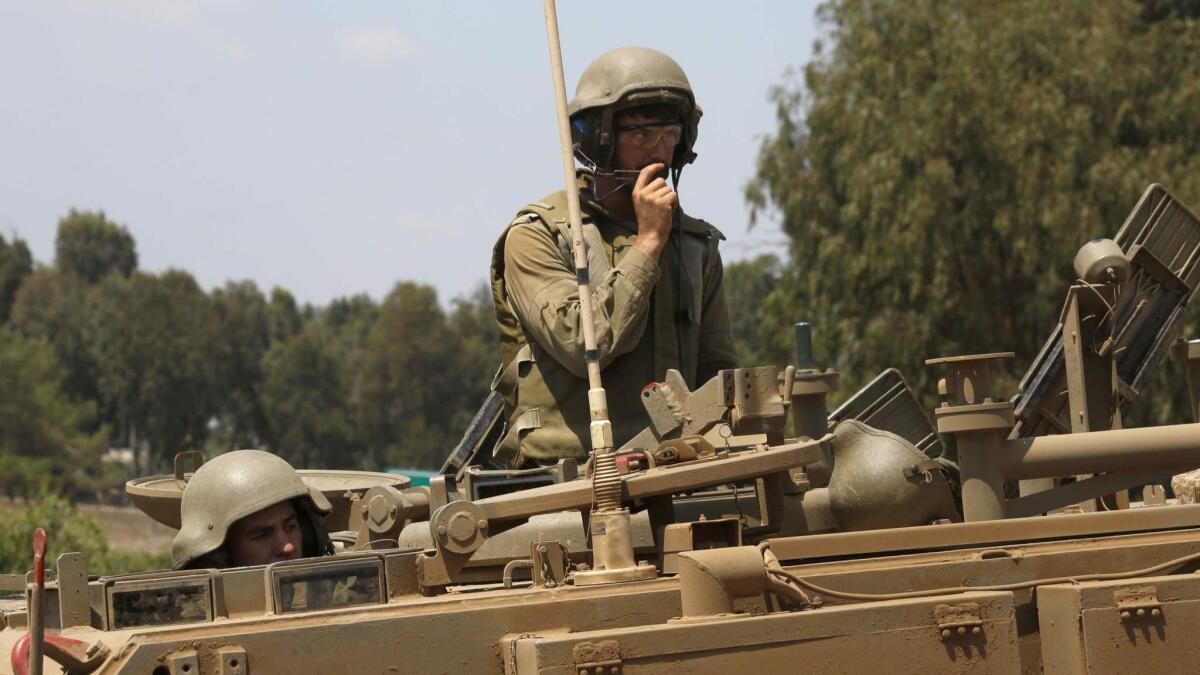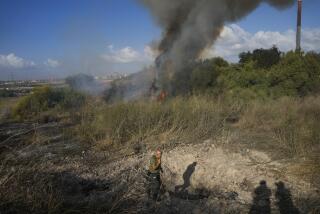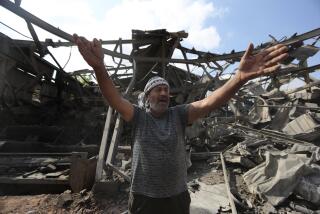Syria accuses Israel of assassinating top rocket scientist

Syria on Tuesday accused Israel of assassinating a top Syrian rocket scientist over the weekend, heightening the growing tensions between the two countries as Syrian government troops restore control over areas bordering Israel.
Aziz Asbar, a research director at Syria’s Scientific Studies and Research Center, was killed Saturday by an explosive device targeting his car in the town of Masyaf in Syria’s Hama province, according to Syria’s official news agency SANA.
The center has long been linked by intelligence agencies to Syria’s chemical weapons program, and Israeli warplanes are suspected to have targeted the center’s facility on at least two occasions over the last year, in September and July.
Syrian media reports blamed Israel’s Mossad intelligence agency for the killing and said Asbar had survived two previous assassination attempts, also by Israeli agents. According to the al-Watan daily newspaper, he was killed because of his “important” work on Syrian defense systems.
“Yet again the Israeli enemy has assassinated one of the greatest Syrian minds,” al-Watan said in a commentary on Tuesday.
Also on Tuesday, the New York Times quoted an unnamed official with a Middle Eastern intelligence organization as confirming that Israel was responsible for the attack. The newspaper said Asbar had been collaborating with the commander of Iran’s Quds Force, Gen. Qasem Soleimani, on the production of precision-guided missiles in Syria.
An Israeli government spokesman declined to comment on the allegations.
If the assassination was carried out by Mossad, it was the latest in a long line of Israeli attacks targeting Syrian weapons capabilities and development. Israel has carried out more than 100 airstrikes against targets in Syria since 2012, aimed either at Iranian military facilities or at attempts to transfer sophisticated weapons to the Iranian-backed Hezbollah militia in Lebanon.
The Syrian Scientific Research Center has long been a focus of international efforts to curtail Syria’s capacity to develop weapons of mass destruction, including chemical and biological weapons. A branch of the center outside Damascus was among the targets of U.S. strikes against Syria in April, and the institution has been sanctioned by the U.S. Treasury Department since 2005.
After the Syrian government carried out what independent inspectors said was a sarin gas attack that killed as many as a 100 people in the town of Khan Sheikhoun in 2017, the United States also sanctioned 271 individuals associated with the center.
Asbar was not among them, perhaps because he was associated with Syria’s missile program rather than the development of chemical weapons.
According to al-Watan, Syrian authorities had twice detained cells of local suspects allegedly recruited by Mossad who were engaged in monitoring Asbar’s movements. A faction of the main Al Qaeda affiliate in Syria, called Abu Amara, claimed responsibility but was working on behalf of Israel, the newspaper said.
Syria’s missile development is a top concern of Israeli officials, in part because of their worries concerning the expanding influence of Iran there.
The attack comes as Syrian troops regain territory along the 1974 demarcation line separating the Israeli-occupied Golan Heights from Syria. The two countries have been in a state of war since 1967, when Israel occupied the Golan Heights, and although no shots have been fired since the 1974 cease-fire, Syrian President Bashar Assad continues to press for the return of the territory.
Syrian troops returned to the Golan Heights area last week after rebels who had controlled the area surrendered, restoring the status quo that had prevailed before the Syrian civil war. Their standoff now, however, has been further complicated by the extensive presence in Syria of Iran, which maintains advisors and allied militias embedded with the Syrian army.
Russia has been working to bring back United Nations truce observers into the area, but Israel continues to assert that it will take whatever action it sees fit to prevent Iran from establishing a permanent foothold in Syria, along its borders and elsewhere.
In an interview last week with Israel Radio, the country’s minister for regional cooperation, Tzachi Hanegbi, cited Israel’s fears about the development of Iran’s missile capabilities in Syria as a top concern.
“What we have laid down as a red line is military intervention and entrenchment by Iran in Syria, and not necessarily on our border,” he said.
More to Read
Sign up for Essential California
The most important California stories and recommendations in your inbox every morning.
You may occasionally receive promotional content from the Los Angeles Times.










